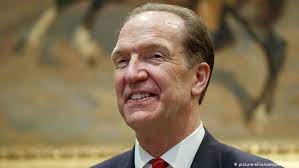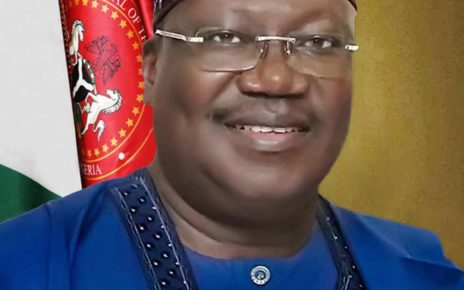The World Bank Group has stated that the current multiple exchange rates being operated by the Central Bank of Nigeria (CBN) is slowing the nation’s economic growth based on the inflationary impact and discouragement of foreign direct investment (FDI) into the economy.
The World Bank Group President, David Malpass, made this remark in a blog posted on Thursday titled ‘Parallel Exchange Rate: The World Bank’s Approach to Helping People in Developing Economies’.
Specifically, the banker pointed out “the economics of parallel exchange rates is clear: they are expensive, highly distortionary for all market participants, are associated with higher inflation, impede private sector development and foreign investment, and lead to lower growth”
In the blog post, Malpass listed 24 Emerging and Developing Economies (EMDEs) as currently operating the multiple exchange rate system, noting that efforts by developing countries such as Nigeria to discontinue the multiple exchange rate system had met a brick wall as the countries have shown a reluctance to change.
He further clarified: “In some countries, authorities have embarked on a unification process but are reluctant to move quickly enough because vested interests will be giving up a subsidy. The gradual approach to FX unification often results in no unification despite repeated Fund arrangements.”
Malpass pointed out that the effects of multiple exchange rate systems included reducing the impact of the World Bank development project, leading to corrupt practices, could make debt servicing obligation more burdensome and increasing the likelihood of debt distress.
Also, the World Bank chief maintained that parallel exchange rate markets can significantly diminish the impact of World Bank projects, adding that a primary problem is the lack of value for money when financing projects that have local currency expenses.
He highlighted the World Bank Group’s approach to curbing the problem, noting that some of which are not providing budget support assistance to countries with significant foreign exchange rate premiums.
According to him, Nigeria has a premium distortion difference of 61 per cent as of March 2023.
Malpass further stated other strategies being deployed by the bank as including ensuring loans are solely used to finance foreign expenditure and the cost of local expenditure is financed by the countries themselves while also making sure governments provide funding for the difference between the official exchange rate and the parallel market in countries where the difference is significant.
He stated: “Another way is to ask the government to provide counterpart financing to partly compensate for the exchange premium between the official and the parallel foreign exchange rate in countries where the cost of the policy is most apparent and distortive.”
The newly elected President Bola Tinubu had on Monday in his inaugural address hinted of plan by the new administration to end the multiple exchange rate system in Nigeria.




